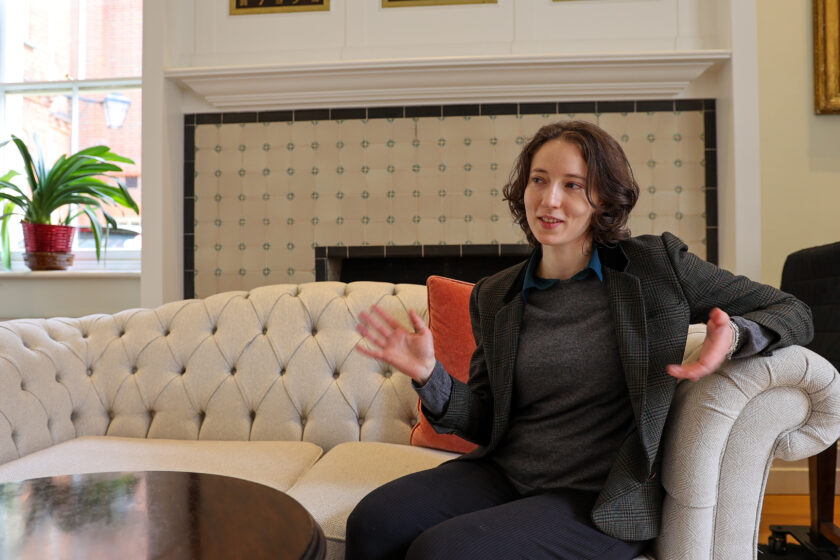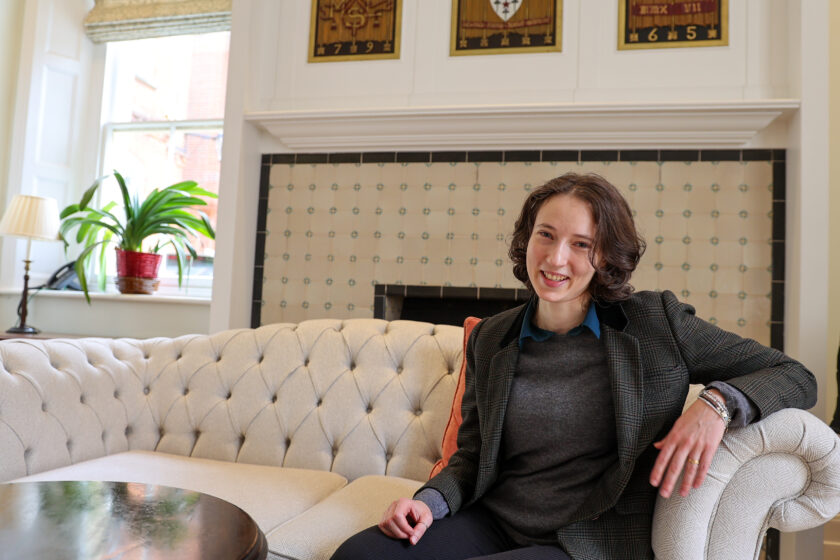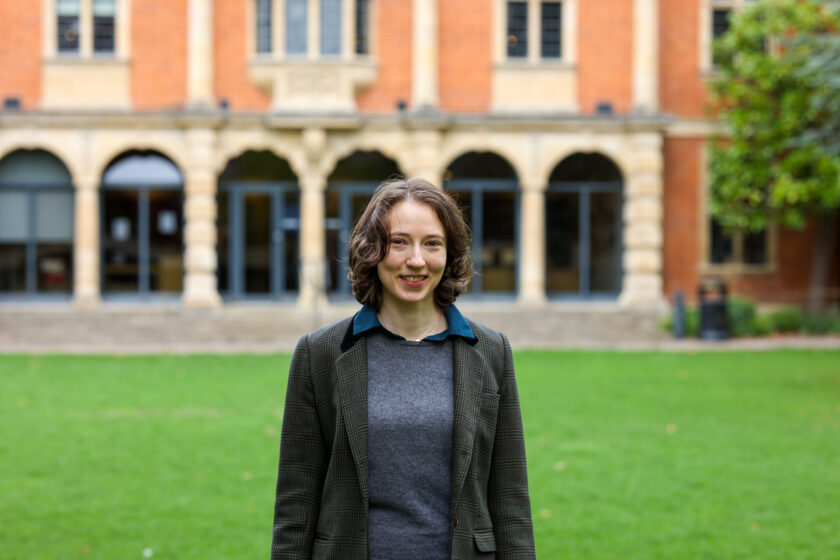Dr Francesca Arduini is Somerville College’s new Tutorial Fellow in Economics. A microeconomist motivated by the goal of uncovering and narrowing inequalities, she kindly took some time out from her start-of-term preparations to tell us a little more about herself.

Dr Francesca Arduini
This is something of a homecoming for you after several years at UCL, Yale and in private consultancy. How do you feel about returning to Oxford?
During my last days at Magdalen as a PPE student, when people were saying their goodbyes, a friend of mine knowingly said to me “nobody ever really leaves Oxford”. In my case it rang true because I was about to embark on a two-year MPhil in Oxford. After that, I moved to London to work for an economic consultancy, Oxera, but Oxford remained in my life. It turns out Oxera was founded by Oxford academics, and I was encouraged to continue pursuing my academic interests. I became a Stipendiary Lecturer at Jesus College, and commuted to Oxford frequently, and continued this role when I left consulting and started my PhD. As my PhD came to a close, and I applied to academic jobs around the world, I wondered whether the end of my time at Oxford was finally approaching. When I was offered the job of Fellow at Somerville, it did feel like a homecoming. Oxford has been deeply formative for me, and I cannot imagine a better place to do research and teach.
You’ve clearly been an exceptional scholar throughout your academic career, including your time reading PPE at Magdalen, where you were both Exhibitioner and Demy of the college. At what point in those studies did you know economics was the discipline for you, and why?
In a sense, I am still not sure that economics is the discipline for me! While I was doing PPE, I almost switched to Maths and Philosophy, or Physics and Philosophy… Perhaps the best reason why economics is my subject is that it is an incredibly broad subject, both in terms of topics covered and methodologies used. I love the fact that it attempts to answer questions about people, the natural subject of the humanities, while aiming for the rigour of the sciences. Economics allows me to tackle many of the questions which are most pressing to me, from understanding the impact of hormonal contraception on educational outcomes to accurately estimating the damages due to consumers in class actions against abusive firms.
I love the fact that economics attempts to answer questions about people, the natural subject of the humanities, while aiming for the rigour of the sciences
You’re a microeconomist interested in understanding how individuals, households and corporations make decisions. How will that research have a positive impact in shaping decision-making in governments and society more generally?
In so many ways! Here is an example I am particularly passionate about: parental leave. The UK system is very outdated, with gendered entitlements and overall very low statutory pay. These reinforce traditional gender roles, gender pay gaps, and harmful disregard of the value of care work. But how do we effectively reform parental leave? To answer this question, we need to understand how parents make decisions about sharing childcare and work responsibilities. We also need to think about the incentives of employers to hire and promote people depending on their expectations of whether they will be primary caregivers. Microeconomics offers ways of answering these very complex questions in a rigorous, data-driven manner, so as to give policymakers the most accurate answers possible.
Why is game theory so important to gaining an understanding of how these microeconomic behaviours occurs?
In microeconomics, we can distinguish between decision problems and strategic interactions. In decision problems, a single entity makes a decision without considering how its own behaviour may affect others’ choices. For instance, if I choose whether to buy one sandwich or another at a large supermarket chain, I do not believe that my choice will have a substantial impact on the supermarket’s stocking or pricing behaviour, because they have a lot of customers, and I am just one of them. Instead, whenever we make decisions which are interlinked with the choices of others, we have a strategic interaction. For instance, the pricing behaviour of one big supermarket chain affects the pricing behaviour of another big supermarket chain, which in turn affects the former. In this case, we need to find some form of equilibrium, or solution, to the problem. Game theory is the study of this very wide class of problems. We can apply it to antitrust cases and auctions, but also to more surprising contexts, such as understanding dynamics within households, including inequalities within couples.
As a student, find time for self-care…regularly not looking after yourself is very much a false economy!
As an Oxford alum, do you have any advice for this year’s PPE students joining Somerville?
Absolutely, yes! My door is always open if anyone wants to have a coffee and talk. While I do have some PPE-specific advice, my top two suggestions are relevant to any subject. Number one, don’t second-guess your place at Oxford. If you start feeling impostor syndrome, remember that a team of experienced academics selected you out of a

pool of outstanding candidates. You may not see it yourself, but you are not an impostor at all! Number two, find time for self-care, especially when you feel like you don’t have any time for it. You might feel overwhelmed by the workload and by all the opportunities around you, and struggle to make time to sleep, exercise, eat healthily, and whatever else you need to recharge your batteries. However, regularly not looking after yourself is very much a false economy, and it will make you less productive at everything else! One of the most important life skills you can learn during university is how to find a sustainable pace and balance in your life, where you are able to feel healthy and satisfied with yourself.
What do you do outside work/to relax?
I have a 2 year-old child who loves being outdoors, so I spend a lot of time with him in our garden. I go around watering plants, weeding and the like, and he toddles around with me and “helps” me – it is really delightful, especially in summer! Another current favourite pastime of mine is going for long walks either in company, or listening to audiobooks of novels.
It’s early days, but what do you hope to achieve from your time at Somerville and Oxford?
I am excited both for the research and teaching components of my role. I am looking forward to starting new projects with Oxford colleagues. One pet hope I have is to be able to start interdisciplinary work with colleagues at Somerville. I believe this type of work has great potential, and the College environment is a unique setting to facilitate it. The College system also has another great strength relative to more centralised universities, which is fellows’ ability closely to mentor students. I take very seriously the responsibility that a fellow has towards their students. I know first-hand how impactful a caring and knowledgeable tutor can be in shaping students’ experiences of Oxford and even their lives going forwards. I hope to provide my students with a space to learn about economics but also help them thrive more broadly, as individuals finding their paths in life.

Dr Arduini at Somerville College, September 2025